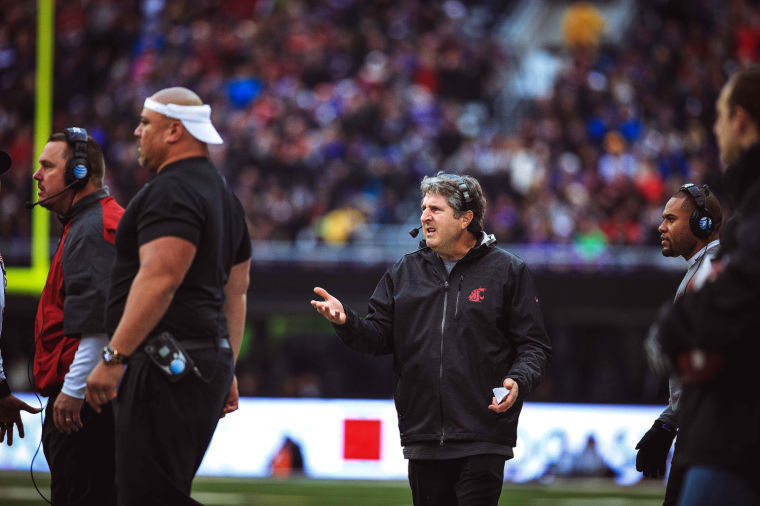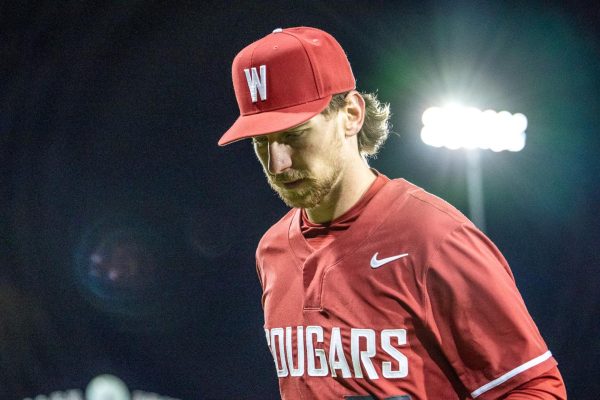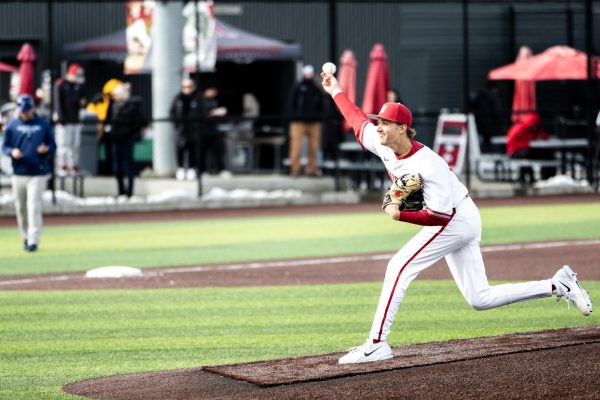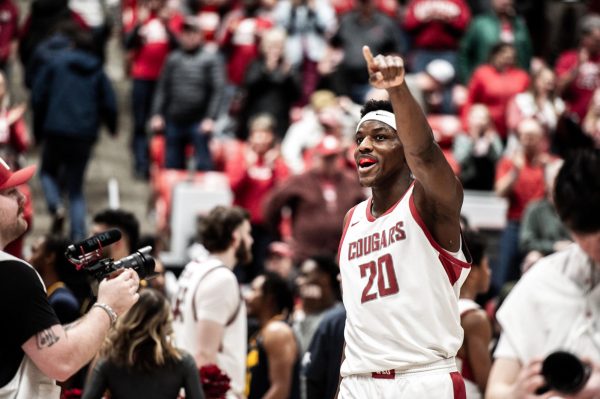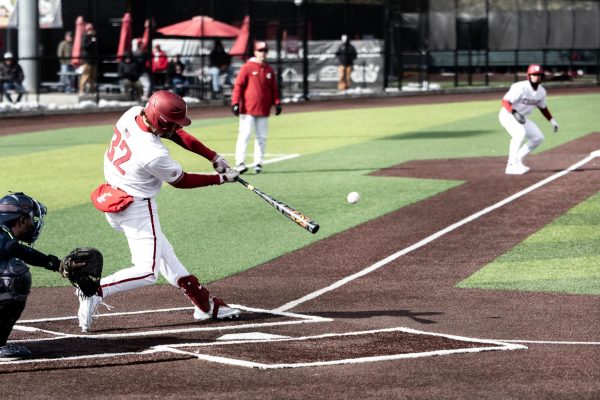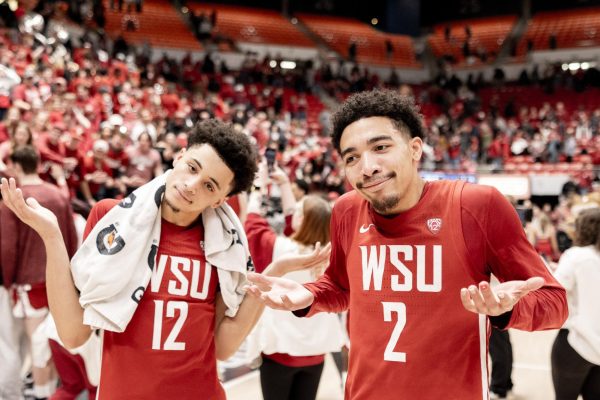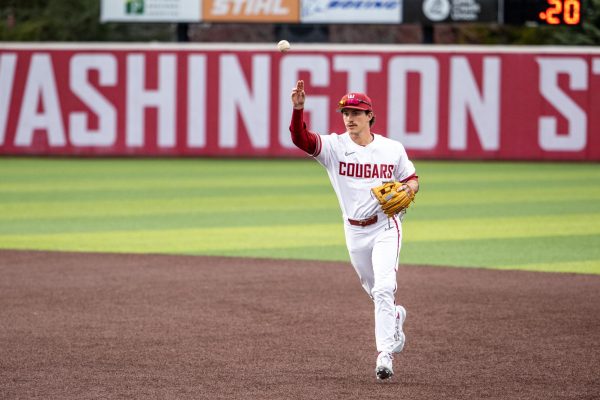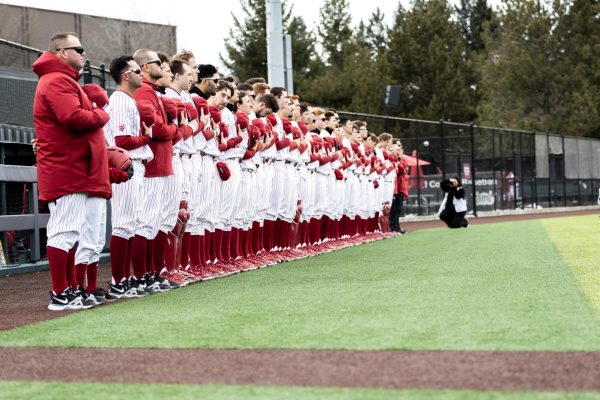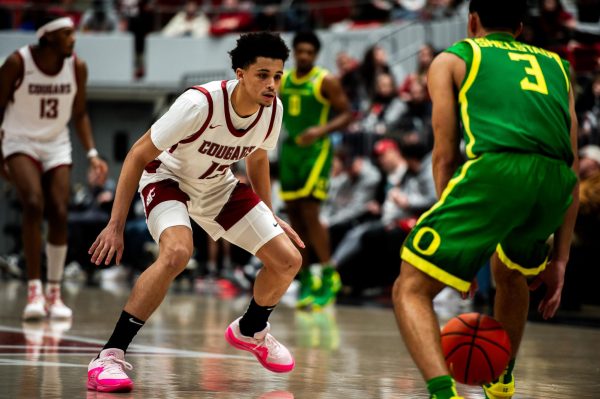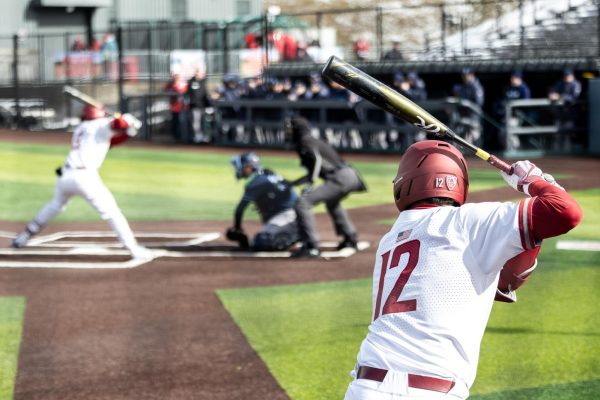Give recruits fame, coaches blame
February 5, 2014
It’s signing day, and high school football stars from around the country are getting set to sign letters of intent to play at Washington State.
Depending on where you look, WSU is projected to sign a class that will rank somewhere around the nation’s top 50. This is a pretty typical spot for WSU, although one can never be too sure how good a class is until they see it pan out over the next few years.
Recruiting is one of the many battles that make up the war that is college football. Players de-commit, coaches bend or break the rules of recruiting, and nothing is set in stone until players actually sign letters of intent on signing day.
Because of this, verbal commitments really don’t mean a thing. For example, WSU will not be receiving letters from players like Ronald Monroe, Miguel Machado or Chandler Leniu. All were verbally committed to play football in Pullman next fall and all will be taking their talents elsewhere.
As Cougar fans, it is easy to get mad at the kids that go back on their word to play for WSU, but it is important to remember that at the end of the day these are just kids trying to do what’s best for them in their future. They are being influenced by a number of different role models who think they know what’s best for them, and a teenage mind can be persuaded to do a number of things at a moment’s notice.
Therefore, blame should not be placed on kids who de-commit from a university. There is one exception however, and that is if a kid de-commits from a school and then commits to the school’s rival, like Bishop Sankey did in 2011. In this case, the player deserves all the hate and criticism they receive.
But in most cases, people should try to understand why players sometimes end up choosing to go a different route. Ronald Monroe’s passion is quarterback. WSU was going to put him at receiver. Sometimes a player will de-commit after a school receives commitments from someone of the same position, and they feel they won’t get the same playing time they would have otherwise. Sometimes it just doesn’t work out.
If there is ever blame to be put forth, it should be on the coaches who bend and sometimes break the written and unwritten rules of recruiting. Technically, a coach can recruit a kid all the way up to the time they sign their letter of intent—even if they have already verbally committed to another school. There are certain times during the year that coaches are forbidden to contact recruits, but some find ways around this. And some coaches recruit kids who haven’t even taken a junior high geometry class yet.
To coaches like these, players seem like no more than pawns being used to better their job security. After all, it is the coaches who are being paid and will lose their jobs if they don’t put forth a winning team. That is why some coaches will do everything they can to get the best players to come to the school they coach for.
Other coaches are left at an unfair advantage. Should they too straddle the fence of what is considered ethical and unethical in college football recruiting? More and more have and it has changed the landscape of recruiting dramatically in recent years.
The problem here is the exploitation of kids that are still in high school. They are being put under a tremendous amount of pressure and they don’t want to let anyone down. Often times they will sign their letter to play at the school that was able to make the last impression on them.
The magnification of recruiting is putting these kids under a microscope. They are like celebrities with every move they make being closely monitored by fans desperately craving their play.
The NCAA needs to strongly consider rule changes in recruiting or it will continue to evolve down the road it is going. Players should either be required to sign letters of intent when they give verbal commitments, or coaches should not be allowed to contact players after they give verbal commitments. In addition, coaches should not be allowed to recruit players until they are at least sophomores in high school.


